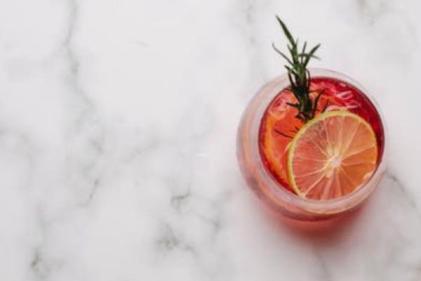 Although the male partner’s role in conception may appear simple, there may be issues on his side that are easily overlooked.
Although the male partner’s role in conception may appear simple, there may be issues on his side that are easily overlooked.
If you analyse the actual statistics involved in the potential of the sperm meeting the egg, it is astoundingly small. On average, a man ejaculates about a teaspoon of semen, containing between 100 million to 300 million sperm. Fewer than 100,000 make it through the cervix (opening to the uterus), a mere 200 survive the journey up to the fallopian tube, and only one can fertilise the egg.
So, having the healthiest sperm possible, and not only if you’re considering IVF, gives the best possible chance to conceiving.
So here are the top five tips for promoting healthy sperm:
1. The fats of life
The hormone involved in producing sperm is testosterone. It is made from cholesterol and is therefore a fat-based steroid hormone. Eating the right kinds of essential fatty acids may help boost testosterone levels. The right kinds of fatty acids are those that are liquid at room temperature, found in nuts and seeds (ground on porridge, or whole as a snack), oily fish such as salmon, mackerel and sardines, and olive oil. Conversely, saturated fat from animal products, which tend to be solid at room temperature, can disrupt the body’s usage of ‘good’ fats, so cutting down on processed meats, fatty cuts of meat and high fat dairy can also be useful for sperm production.
2. A note on quality
There is no quality-control in the body over what sperm get through into the ejaculated semen, so trying to ensure that the environment is right for sperm development is very important. The most common substances that damage sperm include alcohol, cigarette smoke, diets too high in sugar, pesticides and other toxic chemicals found in our environment. To improve the quality of sperm, guys should reduce their intake of alcohol, caffeine, sugar; and stop smoking. Additionally, they could replace sugary drinks with water and chocolate, and biscuits with nut bars. Use fresh fruits as snacks, have plenty of fresh vegetables for lunch as a salad or in a soup, and include two or three portions of green vegetables with good quality protein at the main evening meal.
3. DNA matters
The success of a viable embryo depends to a certain extent on the genetic DNA of the egg and the sperm. Eating natural, organic foods full of anti-oxidants may help to protect the DNA of the sperm. Antioxidant nutrients include Vitamins A, E and C, manganese, selenium and zinc, and are found in fresh fruits and vegetables, whole grains, nuts and seeds. If you and your partner are having difficulty conceiving, it may be worth measuring your partner’s sperm DNA fragmentation, or the level at which the sperms’ DNA strands are breaking down, to see whether these protective factors need to be put in place.

4. Keep cool
The maturation of sperm should be in is a temperature about five degrees below body temperature; this is why the scrotum hangs outside the body. Too much heat and/or friction around the testicles can destroy the sperm. Your partner should avoid hot baths and, if exercising, make sure not to wear tight sports clothes or underpants. There is mounting speculation that EMF signals given off by mobile telephones and laptop computers may lower sperm quality. Mobiles should therefore be kept in a jacket pocket, and advise your partner to never work or play with a computer on his lap.
5. The key to success
Once the sperm reaches the egg and attaches to its outer wall, the head of the sper- known as the acrosome - releases enzymes that help to dissolve the outer membrane and enter the egg. This enzyme is dependent on the mineral zinc. Zinc is also involved in cell replication, so it is vital for the survival of the embryo. Zinc levels need to be good in both the man and the woman for the pregnancy to progress, and is found in seafood, pumpkins seeds, whole grains and un-sulphured dried apricots. Zinc is also used in many enzyme reactions in the body, including stress-control, digestion and immunity. It also supports the main liver enzymes that break down alcohol. If you drink a lot, or are stressed, keep coming down with colds or have many white spots on your finger nails, then your zinc levels may be low.
At Glenville Nutrition, we specialise in optimising the nutritional status for both males and females trying to conceive. Indeed, 50% of our fertility clients are male, so we’ve lots of experience in improving all sperm factors. If you’d like to discuss how we can help, please contact us on (01) 402 0777, or email us at info@glenvillenutrition.ie.








